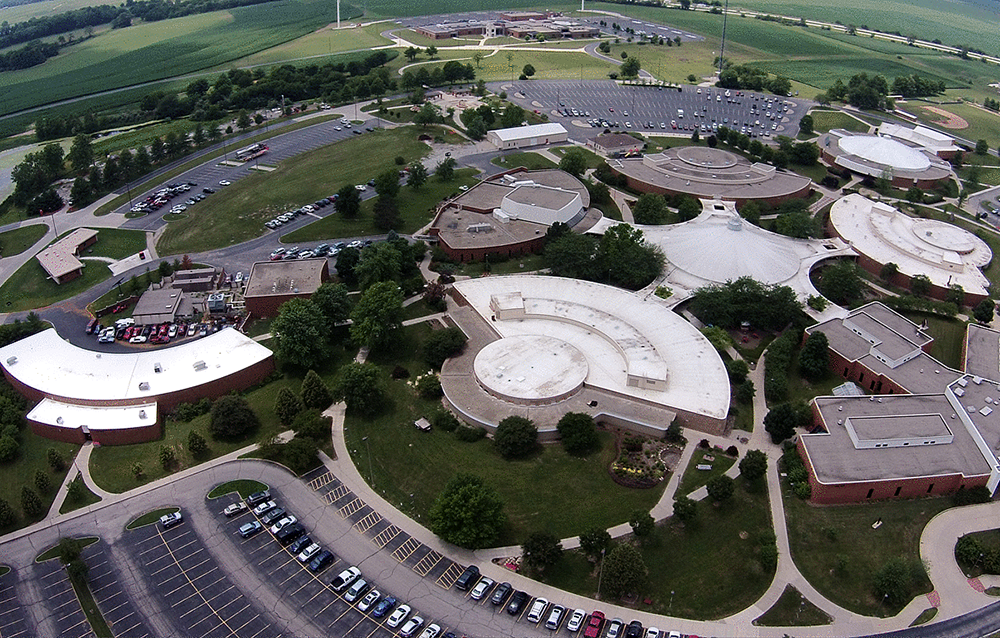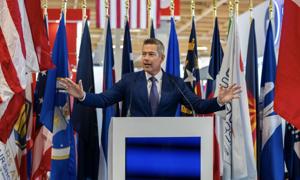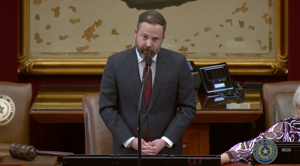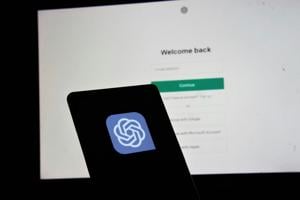Banning AI instruction in college could stifle innovation, IL lawmaker says
(The Center Square) – Supporters of a new law prohibiting artificial intelligence being the sole instructor in community college say the move protects educational quality, but critics argue it will hold back innovation.
House Bill 1859 bars community colleges from replacing faculty with AI, though teachers may still use AI tools. Gov. J.B. Pritzker signed the measure Aug. 15.
“AI is a tool, not a teacher,” said state Sen. Mike Porfirio, D-Lyons Township. “Illinois must stay proactive when it comes to cutting-edge technology. This measure would protect the jobs of our teachers, and secure a legitimate education for our students.”
State Rep. Paul Jacobs, R-Pomona, opposed the bill, calling it too vague to work.
“It doesn’t really define AI. Anybody can put anything they want in there,” Jacobs told The Center Square. “It’s just so ambiguous … It’s going to stifle any kind of creativity.”
Jacobs warned that the speed of technological change will make Illinois’ restrictions unworkable.
“How do you pay for compliance? Are we going to have AI cops out there? You can’t enforce it. It’s just a very poorly written bill. Enforcement is ridiculous, you just can’t do it,” said Jacobs. “And as fast as AI is moving, this law will only make sure Illinois falls behind, which is pretty typical for our state when something promising comes along.”
Jacobs, who serves on the House Appropriations-Higher Education Committee, suggested AI could provide more affordable learning options for students if used carefully.
“Some classes can be taught with AI easily. Some people are able to learn that way. Others need the attention of the professor,” he said.
Jacobs, who also works in the medical field, pointed out that forms of AI are already being used in everyday professional settings, including health care.
“If you can define certain parts of AI to control, that might work. In my practice we already use lower-level AI in equipment that suggests diagnoses for glaucoma or tumors, but we mostly ignore it and do it ourselves,” Jacobs said. “AI will keep advancing, and while some might want to replace doctors with it, that’s something we have to guard against. The definition in this law just isn’t sufficient.”
A 2023 study by RAND Education and Labor found that roughly 25% of teachers already use AI tools in the classroom, and universities across the country, including Harvard, have experimented with AI teaching assistants.
Jacobs said Illinois should focus on defining how AI can be used instead of restricting it outright.
“They used to have programs where you taught yourself from a book, then tested when ready. I could see AI working the same way in college classes,” said Jacobs. “But professors and unions will fight it, no matter how beneficial it might be. It’s like the horse-and-buggy days when the car came along. Change is coming, but we still need to balance it with the personal touch in education.”
Latest News Stories

Lake Land College Hires Philadelphia Firm for $100,000 Digital Marketing Campaign

Trump delays China tariffs by 90 days

Kennedy visits Atlanta’s CDC

DCFS denies claim that agency uses uncertified interns to investigate families

Trump declares ‘Liberation Day’ in D.C., calls in National Guard

Illinois quick hits: State-based health insurance marketplace approved

Judge denies Trump DOJ request to unseal Ghislaine Maxwell grand jury records

FAA partners with college to train next generation air traffic controllers

Judge denies Madigan’s motion to remain free pending appeal

The U.S. Department of Education launches nationwide tour

Trump takes aim at Chicago crime, no-cash bail while singling out Pritzker

Burrows: Only thing standing in the way of disaster relief are missing Democrats








